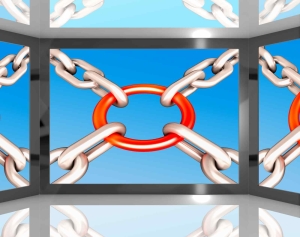
The Link Between Uncertainty and Success
A light breeze blew across the Tweed River one warm December evening in 2006. People stood at tables drinking, laughing and telling tales of the year that was all but done. A middle-aged stranger made his way across the crowded balcony and gave me some very disturbing news.
He was a seasoned investor and he offered me one piece of free advice: sell all your shares. He said a crisis was coming. He couldn’t tell me when, but he warned it would not be long. He said it would affect the entire world.
I didn’t know this guy. Why should I believe what he said? The threat of crisis wasn’t on the news. Politicians weren’t predicting one, and neither were most economists.
But nonetheless he was right. In less than two years the world fell into the harsh grip of the GFC. This man had correctly read the signs. He foresaw what very few others could see at the time. I don’t know how he did it, but he did.
Perhaps experts were looking at other information and drawing different conclusions about the nature of economic reality. Perhaps some could see what was happening but didn’t think enough about what it meant. Or perhaps they just weren’t all that interested, living in comfortable fool’s paradise.
And what if this guy was wrong? At the time, how could I know he was right?
This brings us to a key understanding. There is an element of uncertainty about the nature of reality. There is an element of uncertainty about the future. There is an element of uncertainty about change. We may predict and we can plan, but we can never really be sure. (Is command and control nothing more than an illusion?)
So let’s stop for a moment and think. We may, like the guy I met, correctly read the signs and predict the future. But how can we be sure the right signs were read, or the right conclusions drawn?
I guess we all want to be the person who correctly reads the signs and steers the ship from impending disaster. But here’s another key point: all too often we are the ones who contribute to the uncertainty. We don’t mean to do it, but we do. And there are at least 3 ways we can unwittingly do this. Let’s look at them briefly.
First, we can contribute to uncertainty by being too far removed from fundamental realities. We might think of the boss making important decisions on the top floor of an office without knowing the reality of people who work on the ground floor. People on the ground floor are scratching their heads wondering why on earth anyone would ever decide to do that.
People operate according to mental maps of reality (and those maps are often supported by established traditions), but the maps may look very different to the territory other people experience every day. The nature of the map may not reflect the nature of the territory. It is very common for people to never question their mental maps, and to judge other people unfairly. This contributes to uncertainty.
Second, we can contribute to uncertainty by being too close to fundamental realities. Sometimes people can be so close to problems, they simply can’t see them. They can’t see the forest for the trees. Outsiders can often see the problems clearly, but insiders simply can’t see them. Sometimes fresh perspectives are needed, yet many people cannot look at the familiar with fresh eyes. All they see is what they have always seen. This adds to uncertainty.
Third, we can contribute to uncertainty by being too tolerant. Perhaps you thought tolerance is always good; it isn’t. Sometimes we tolerate problems we should not accept. In manufacturing this is called the “normalisation of deviance”. Small problems are recognised and accepted as part of the norm. However, given the right conditions, these small problems turn into major problems that lead to disaster. NASA was guilty of “normalisation of deviance” and it led to the loss of 14 lives and two space shuttles. There were many successful shuttle missions and only two failures, but the fact remains that of the five shuttles ever built and launched into orbit, two were lost because of manufacturing faults. Being too tolerant may sometimes appear to produce harmony, but it can equally create great uncertainty and danger.
We like to think there are superheroes who know what to do and can rescue us all from danger. But we can’t escape the real world, and uncertainty lies at the heart of reality. It’s good to read the signs, but people aren’t always right. We all deal with change, we all face uncertainty, and we all contribute to it in some way. And this leads me to my final point.
An old friend of mine, who is also a senior executive in a large organisation, tells of a certain academic who posed the question, “What’s the major difference between people who are very successful and those that aren’t?” After years of researching this question, the academic offered his conclusion: successful people handle uncertainty better. In his view, it all comes down to how you handle this fundamental reality of life.
I happen to agree with him. My years of research into what makes people successful at change tells me that people with lots of change fitness handle uncertainty better than others.
The fact that we can all develop our change fitness allows us to end this discussion on a positive note. We may, by our action, decrease uncertainty, but we can never eliminate it. What we can do is improve how we handle uncertainty. Our success in life may very well depend on that.
Dr Steve Barlow is a change fitness coach at The Change Gym. Click on the link to book a time to speak with him.